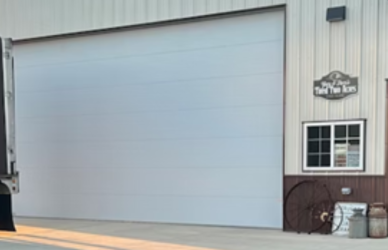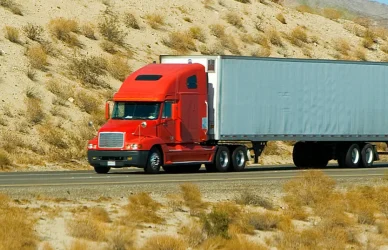Opposition is mounting against congressional legislation seeking to overhaul the compensation structure for specific commercial drivers, with the American Trucking Associations (ATA) at the forefront.
ATA leaders argue that the recently proposed Guaranteeing Overtime for Truckers Act could disrupt established compensation agreements between employers and employees, potentially causing disruptions in the supply chain—a crucial concern as the industry rebounds from pandemic-related disruptions.
“This proposal is nothing more than a thinly veiled attempt to boost trial attorneys’ fees. It would reduce drivers’ paychecks and decimate trucking jobs by upending the pay models that for 85 years have provided family-sustaining wages while growing the U.S. supply chain,” said Chris Spear, ATA president. “Truckload drivers today are earning nearly $70,000 on average plus benefits, and wages across the board continue to rise at historic rates year-over-year — except at Yellow, where one party’s refusal to come to the table destroyed 30,000 jobs. The bill would not affect owner-operators, who, as independent contractors, are not covered by the Fair Labor Standards Act.”
Spearheading this opposition, ATA’s Chris Spear emphasized the potential repercussions of the legislation on a supply chain striving to recover.
“To support this misguided legislation is a vote for supply chain chaos and the inflationary consequences for consumers,” Spear said. “Rather than plaintiffs’ bar bailouts, lawmakers interested in actually supporting drivers could begin by fixing the nationwide truck parking shortage that costs drivers on average $5,500 in lost earnings annually.”
The legislation, introduced to legislative committees for evaluation, targets a section of the Fair Labor Standards Act governing overtime compensation for certain commercial drivers. If passed, it would essentially revoke an existing overtime exemption. As of now, no vote on the legislation’s consideration has been scheduled.
In reaction to the bill, Nathan Mehrens, vice president for workforce policy at ATA, said, “This is a solution in search of a problem. This is not going to actually guarantee anything, even though that’s in the title. And truckers are already doing pretty good in the compensation models that are in place. So, again, no showing of need has been made for making this very substantial change that would literally upend the compensation models of the entire industry.”
Democratic Senators Alex Padilla of California and Ed Markey of Massachusetts are the primary sponsors of this legislation, gaining support from groups such as the Owner-Operator Independent Drivers Association and the International Brotherhood of Teamsters.
“America’s truck drivers are on the front lines of our economy, enduring long hours away from home and, all too often, unpaid wait time at congested ports and warehouses. That’s because for decades, truck drivers have been excluded from overtime pay protections,” Padilla said. “If truckers are forced to wait while on the job, they should be paid. This is not just a matter of fairness; it’s a matter of public safety.”
“From the food we eat to the medical supplies we use in our daily lives, truck drivers make sure consumer goods and commodities reach their destination on time,” Markey said. “However, for almost a hundred years, obsolete labor regulations have denied truck drivers their rightful pay, leading to high turnover and supply chain disruptions.”
A parallel proposal in the House of Representatives is championed by Representatives Jeff Van Drew (R-N.J.) and Mark Takano (D-Calif.).
“Truckers have been left out of overtime opportunities due to archaic standards,” Takano said. “The impact of truckers on the supply chain to get Americans the goods they rely on entitles these workers to competitive wages. In an industry plagued with high turnover, the most common-sense solution is to guarantee overtime pay to drivers.”
Source: Transport Topics











